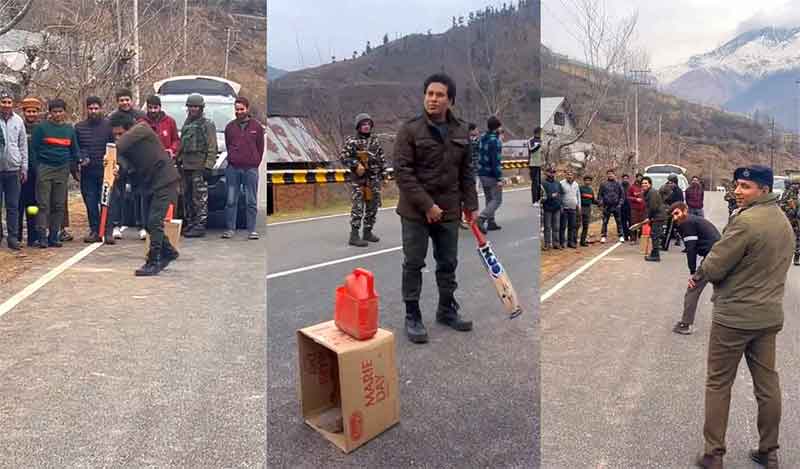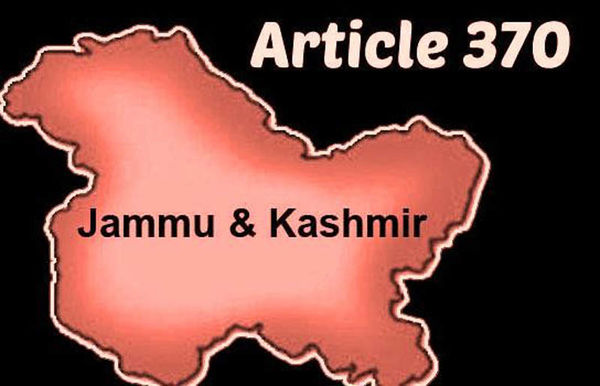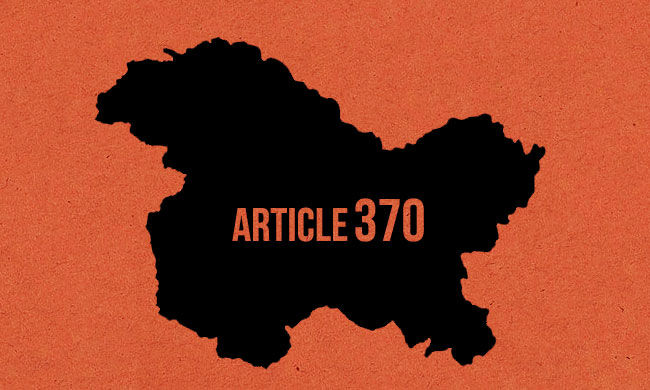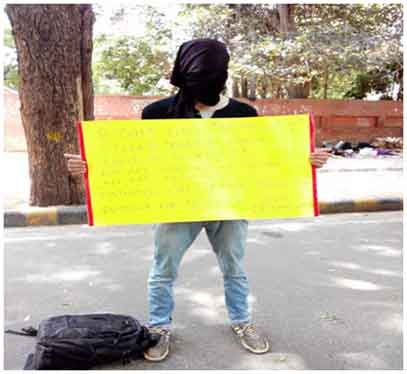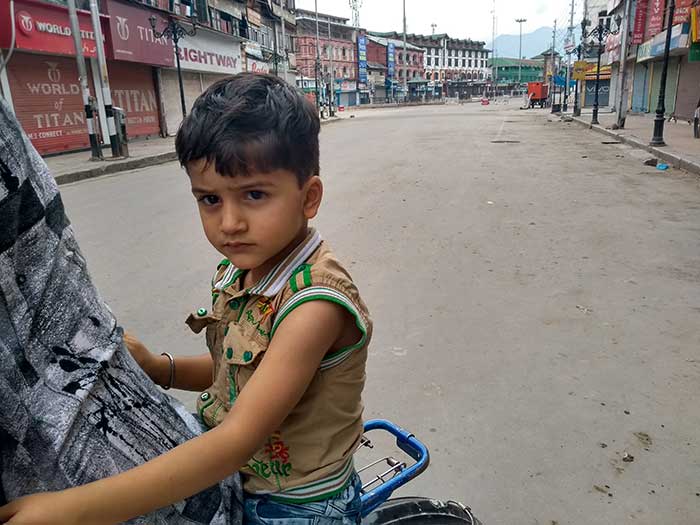
The parallels between Kashmir and Palestine have been drawn for quite a while now – and there have been instances of solidarity based on similarity of circumstances between Palestinians and Kashmiris. Most recently, several important Palestinian news outlets like the 972 magazine, Electronic Intifada and Mondoweiss have denounced the ongoing events in Kashmir which had a special constitutional provision abrogated by the Indian state on Aug 5 followed by a communications blackout. The Palestinian BDS National Committee (BNC) also issued a statement condemning the latest oppression of the Kashmiris.
So, what work does a comparison, such as between Kashmir and Gaza, do for us? For one, it provides an immediate and invaluable reference to visualize how bad things are in Kashmir. It allows us to examine contexts and methods employed by occupying and oppressing forces – and their strategies of containment. Comparisons can also help us be realistic about how things might shape up in the future – and how far and long a controlling force – whether Israel or India – can go in achieving total domination over a people they deem as hostile to their aims.
Gaza, one may know, is often refered to as the world’s largest open air prison. Gaza suffers from severe restrictions both on the “land-side” border with Israel and on its coast. Every now and then Israel imposes blockades on movement of goods, including essentials like medicines, into Gaza. Not to mention of course the three punitive war strikes on Gaza in recent history, like Operation Cast Lead (2008), Operation Pillar of Defense (2012) and Operation Protective Edge (2014). Besides, rockets being fired into Gaza territory frequently is quite commonplace, though Israel claims to act in retaliation to Hamas’ shelling from inside Gaza. This effect of a constant seige and conflict has been very severe on Gaza’s population. The Gaza Community Mental Health Program attempts to monitor the effects of living under conditions of violence, seige and constant humiliation. Gaza also regularly experiences it share of injuries to and deaths of children, whether in wars, the frequent shellings or in protest marches. The Palestinian Center for Human Rights, Gaza, records the injuries and fatalities scrupulously, as say, occurring in each week’s Great March of Return in Gaza going on right now: “On 73rd Friday of Great March of Return: 2 Children Killed and 81 Civilians Injured, including 39 Children, 1 Journalist and 2 Paramedics by Israeli forces (Sep 6 2019).”
There has been some research into mental health condition of Kashmiris too, as compiled by MSF. And most recently, the premier medical journal The Lancet expressed its concern regarding the current state of affairs in Kashmir, especially the effects on health: “The militant presence [lockdown] raises serious concerns for the health, safety, and freedoms of the Kashmiri people.” Several health practioners in India also issued a statement, titled “Statement on Concerns about Public Health Situation in Jammu and Kashmir.” A recent report also highlights how a mental health crisis is looming in Kashmir, stating that “in recent weeks, more patients have been visiting general out-patient departments (OPD) with symptoms of anxiety and reporting palpitations since August 5.” Children in Kashmir have been picked up routinely by the security forces and tortured in the past. The current lockdown is no different as children are being detained and even subjected to brutalities, as several reports have revealed.
The lockdown itself has been an exercise in brute force as a journalist from The Independent noted: “There are armed paramilitary cops strung out in thick numbers everywhere, in virtually every street, intersection, bridge and flyover. I’ve travelled to many conflict zones over the years, including Jaffna during the civil war, and I’ve never seen anything quite as oppressive and claustrophobic.” Comparisons abound everywhere, between one conflict zone and another, and Kashmir’s current militarization is clearly something else. Interestingly, the Kashmiri poet Agha Shahid Ali brought in the sufferings in Bosnia as a counterpoint to the situation in Kashmir, as evidenced in his poem The Correspondent. Another contemporary Kashmiri writer, Mirza Waheed wrote recently that, “…this season’s siege is more crushing than ever, possibly the worst since that first one nearly 30 years ago, a stratagem designed carefully to humiliate an entire people...Parallels tug at you. Like…Gaza, the world’s largest open-air prison, echoes with chilling closeness.”
It is almost insensitive to contrast the miseries experienced by different groups of people, but, Kashmir’s case, at least in the midst of the current lockdown seems almost as bad, if not worse than that of Gaza. The communications blockade and the military presence – even without a official curfew – are playing havoc with daily lives with Kashmiris. It has given them a feeling of betrayal, dispossession and humiliation. Living under any occupation can be a series of daily humiliations – which Kashmir experienced for decades – but this suddent and iron-fisted lockdown has left the Kashmiris deeply shamed, shocked and feeling helpless (not that that is a state characteristic of Kashmiris). While Gaza suffers from being hemmed in and with daily reminders of the limitations they live under, for Kashmiris right now, the conditions are probably similar to being bundled off suddenly to an internment camp, dazed and confused – like the Chinese in India (after the 1962 war), the Japanese in the United States (after Pearl Harbor) and of course, the Jews during the second world war period. One can enumerate such instances many times over – the only irony is that with the Kashmiris the internment camps are their own homes, their gulag is the so-called paradise they inhabit. They see the utter contempt and disdain with which the Indian state is treating them. There is no pretence for the oppression this time around. It is clearly a wiflul thing, done to demonstrate the power the state thinks it has, in order to grind them into submission. As Palestinian poet Mahmoud Darwish writes in his book, A State of Seige:
This siege will endure until the besiegers feel, like
the besieged
that anger
is an emotion like any other.
…
This siege will endure until we are truly persuaded
into choosing a harmless slavery, but
in total freedom!
Maybe, Aug 5 will be Kashmir’s Naqba, then, the “Day of the Catastrophe” that Palestinians commemorate to mark their displacement from their lands in 1948. And maybe we will witness full-scale Kashmiri intifadas to come…
Ananda Maitreya is a Delhi-based writer and a student of social movements. He has been involved in various struggles of the marginalized people, including the Dalit, Adivasi and the Palestinian struggle.

